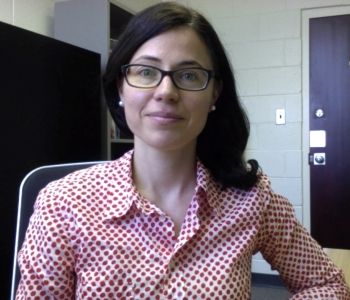
Gains in individual, societal and ecological wellbeing have not kept pace with the great economic growth enjoyed in Canada from 1994 to 2008 – that’s what the Canadian Index of Wellbeing’s 2011 national report concluded. This problem will be tackled at the International Women’s Day Conference “Gender, Wellbeing, and the Politics of Imagination: Law, Culture, Compassion,” hosted by Feminist Legal Studies Queen’s (FLSQ) from February 26-27.
“We are always concerned with economic inequalities and are quite concerned this year with wellbeing declines for women,” says Professor Bita Amani, co-director of FLSQ along with Professor Kathleen Lahey. “Measuring wellbeing is increasingly the focus in both national and international forums, including the OECD. Our purpose with this event is to situate important and thought-provoking conversations, spurred by the imaginations of our speakers, within a broader framework for compassion. A more compassionate society, one might expect, will be a more just and equitable one too.”
The conference will bring together a diverse group of academics, lawyers, community-members, policy analysts and students to discuss questions around this topic and to propose and promote solutions.
The FLSQ conference is a multidisciplinary annual event in celebration of International Women’s Day. The speakers at the conference have adopted a diverse array of quantitative and qualitative research methods. “We are interested to learn how these research methods may reflect more representative outcomes of lived experiences and help generate more relevant knowledge and compassionate recommendations for change,” Amani says. “Law is not the only site of political struggle.”
The facets of wellbeing – food, drugs, climate and land use, with particular emphasis on indigenous rights – are the focus of the conference’s first day. Keynote speaker Professor Norah MacKendrick, the Queen’s University Principal’s Development Fund International Visitor, will talk about how precautionary consumption of everyday consumer products is itself gendered. MacKendrick is a sociology professor at Rutgers University whose research deals with food politics, class and gender. There will also be a screening of Toxic Trespass, a documentary film about chemical hotspots and children’s health, including at the Aamjiwnaang First Nation near Sarnia.
Day two of the conference will move to consideration of a wide variety of systemic social inequalities. Topics include: violence against women, sex-work, multiculturalism and reasonable accommodation of cultural and religious practices, strategies for coalitions and community-based use of international human rights law, gendered wage-gaps, measuring (in)equality, and enhancing women’s representation and agency. The closing panel discussion will concern the promotion of more reflective mindful practices in legal research and law-teaching.
For more information and the conference program, visit the FLSQ website.
Those interested in registering or information on accommodation must contact megan.hamilton@queensu.ca. Anyone wanting childcare should mention this request so appropriate arrangements can be made.